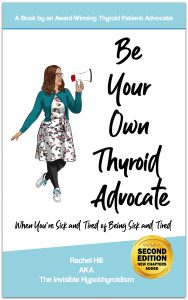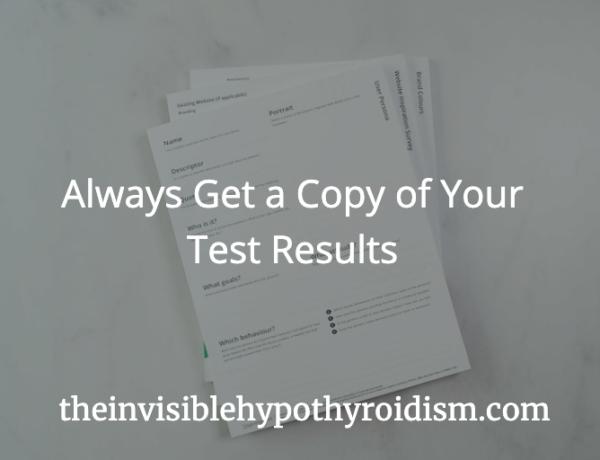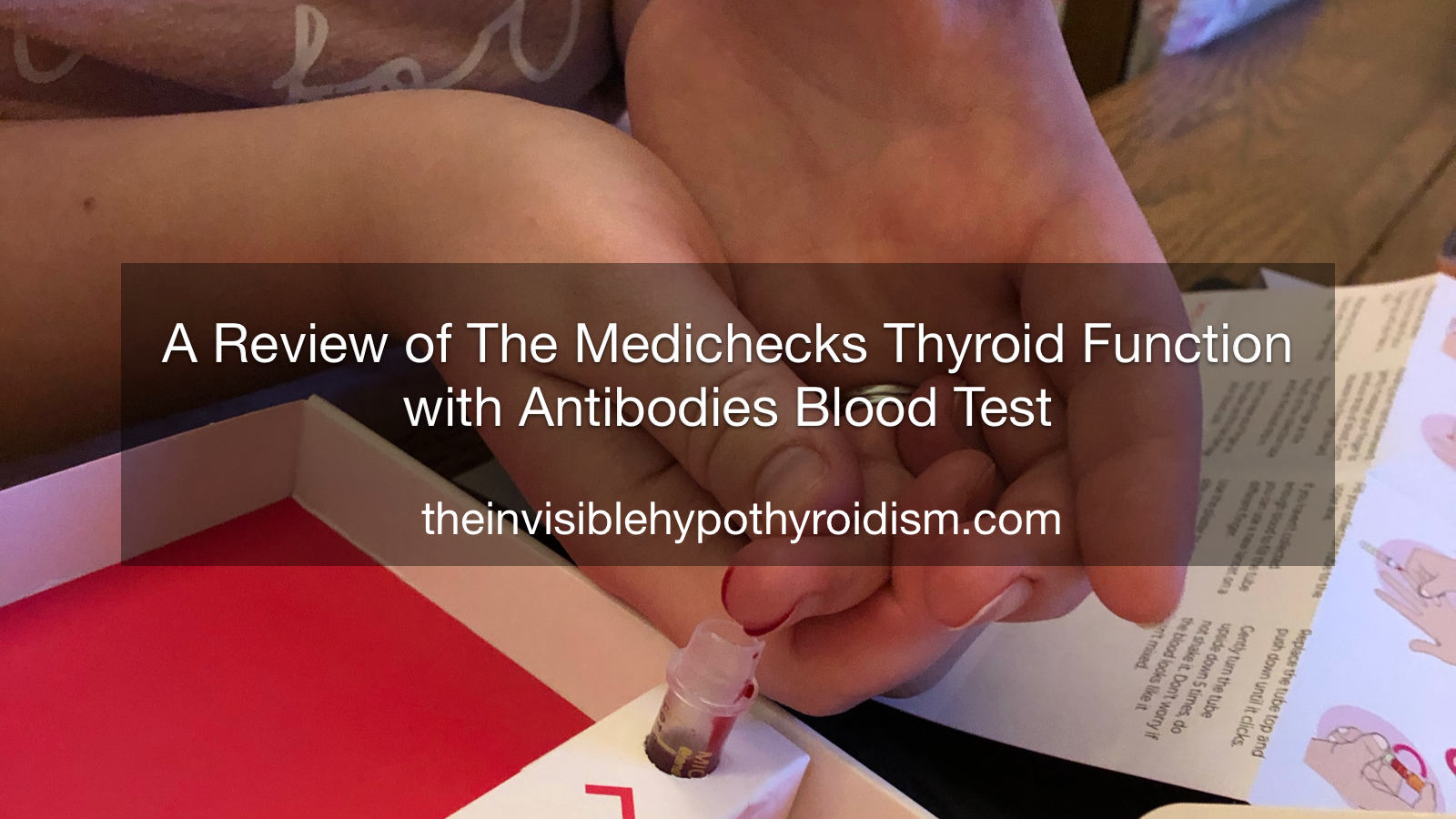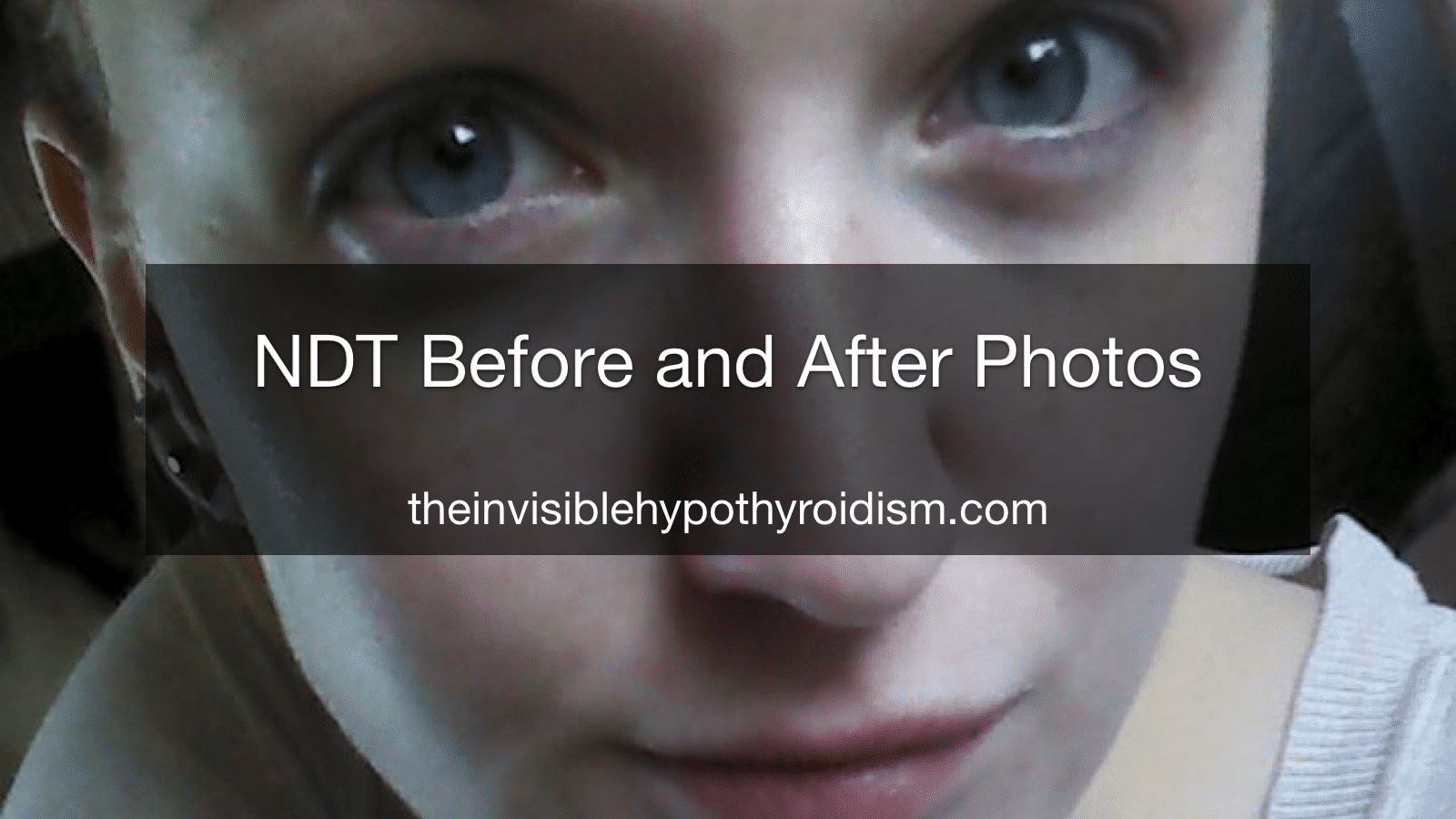Originally published on 4th June 2016 Last updated on 6th March 2024
To supplement or not to supplement Vitamin D? That is the question.
Did you know that many people with hypothyroidism and Hashimoto’s also have low Vitamin D levels?
Actually a hormone, Vitamin D is important for our joints, energy levels, immune system and also ties in to our thyroid hormones too. After all, a deficiency in Vitamin D can stop T3 from correcting your metabolic rate, leaving you with symptoms such as low energy, cold intolerance and weight gain.
Symptoms of Low Vitamin D Levels
Symptoms of low or deficient Vitamin D include:
- Muscle and joint pain
- Muscle and joint weakness
- Bone ‘pain’
- Tiredness or fatigue
- Hair loss
- Depression
Inadequate levels of Vitamin D can even stop your thyroid medication from working as well as it should do.
Many hypothyroidism patients have low or possibly even deficient Vitamin D levels and do not realise, as symptoms of low Vitamin D and a thyroid condition can be very similar.
What Do You Test?
Your doctor can test for 25-hydroxy D if you think you have low levels.
What Are Optimal Vitamin D Levels?
In most countries, vitamin D levels are measured in nmol/L. However, in the US and a few other countries, vitamin D levels are measured in ng/mL. It is important to check which unit of measurement is being used next to your test result.
These two different units of measurement are much like metric vs imperial, which can lead to confusion, especially as most of my readers are split between the UK and US!
To convert ng/mL to nmol/L: multiply the ng/mL by 2.5.
So, for example:
50 ng/ml is equivalent to 125 nmol/L.
Optimal levels of vitamin D as reported by most sources, are around 80 nmol/L or 50 ng/mL.
Dangerous levels of Vitamin D are reported to be above 125 nmol/L and 50 ng/ml.
My Experience of Low Vitamin D
I didn’t suspect my vitamin D level to be low, however, upon testing it was below the bottom of the range, showing that I was deficient in this important hormone and that it was likely contributing to my heavy fatigue and joint pain.
Supplementing Vitamin D and getting my levels back to optimised levels (which, for me, is around 90-100 nmol/L) helped my health a lot. My energy levels improved drastically and the joint pain disappeared.
How many of us are still tired on thyroid medication but putting it down to hypothyroidism and missing another possible cause, such as low Vitamin D?
I keep mine optimised with maintenance supplementation, meaning that I personally take 4000iu of Vitamin D3 per day (with Vitamin K2), retesting levels every 6 months, confirming that they stay around that 90-100 nmol/L.
If I lower this dose, my levels drop pretty quickly.
For those of us with Hashimoto’s as the cause for our hypothyroidism, it is also worth noting that Vitamin D has been shown to lower thyroid antibodies. [1]
This means that it can help to put Hashimoto’s in to remission.
Should You Supplement Vitamin D?
You will need to supplement Vitamin D if you’re low in it, and if you’re found to be deficient, you should receive this on prescription from a doctor. Usually a very high dose such as 10,000-50,000iu is given until levels return to the normal range.
You can find a UK Vitamin D test option here, with a US test option here. Doctors are often happy to check for this common deficiency, but not always. So ordering your own test can be a valuable resource.
It is also worth knowing that we should always take Vitamin D3 with Vitamin K2. This is because Vitamin D3 improves calcium absorption across the GI tract and Vitamin K2 is needed to transfer calcium into your bones and not your arteries. [2]
Vitamin K2 regulates calcium in the blood, so combining Vitamin K2 with Vitamin D3 is often recommended because of the synergy between the two vitamins. Research shows a slower progression of calcification in those taking both vitamin K2 and vitamin D compared to those taking vitamin D alone. [3]
These are two popular Vitamin D and Vitamin K supplements:
The NHS say to take no more than 25mcg a day [4], the US government say no more than 400iu a day, the Endocrine Society say 1,500–2,000iu a day and the Vitamin D Council say 5,000iu a day. So, it’s not completely clear!
It all depends on what you need. My functional medicine practitioner advised that I take 10,000ui until my levels came up (from 30 nmol/L to 80+ nmol/L) and then I reduced this to 4,000iu per day to maintain optimal levels and have done for years now. However, it’s a good idea to regularly retest levels to check where they are.
We do need to be cautious of taking too much, though, and The Vitamin D Council recommends taking no more than the upper limit of 10,000iu a day for adults. [5]
Signs of Too Much Vitamin D Include:
- Low appetite
- Nausea
- Vomiting
- Thirst
- Excessive urination
- Weakness and nervousness.
You could make yourself feel worse by taking too much, so do test your levels before considering supplementing and then retest often while taking supplements.
When To Take Vitamin D
A Vitamin D3 supplement is often best taken with dinner, as this is usually the fattiest meal of the day, which helps with absorption.
Have you found that supplementing Vitamin D has helped?
See also:
The book Be Your Own Thyroid Advocate: When You’re Sick and Tired of Being Sick and Tired, which contains helpful information like this article and so much more.
You can click on the hyperlinks in the above post to learn more and see references to information given.
References:
[1] https://www.ncbi.nlm.nih.gov/pubmed/27186560
[2] https://articles.mercola.com/sites/articles/archive/2011/03/26/the-delicate-dance-between-vitamins-d-and-k.aspx
[3] https://www.healthline.com/health/calcification
[4] https://www.nhs.uk/conditions/vitamins-minerals/pages/vitamin-d.aspx
[5] https://www.vitamindcouncil.org/









No Comments